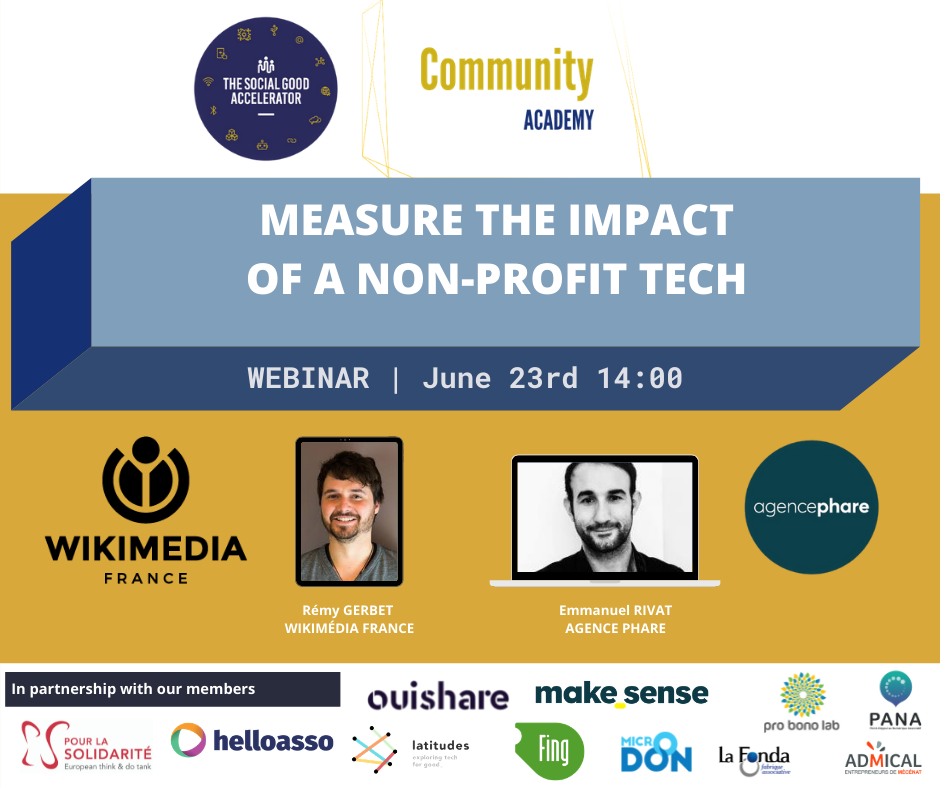Social Tech Academy : a program for the Social Economy, by the Social Economy
Our society has been undergoing profound transformations for several decades, which cannot be understood without taking into account the development of digital technology. The upheavals that it induces undeniably affect the Social Economy sector, which has no choice but to adapt. Noting the constant technological progression in society, the Social Good Accelerator proposes a program of webinars aimed at the digital acculturation of Social Economy stakeholders. Indeed, the digitalization of the social economy is a crucial issue, and its actors must grasp its meaning and take part in it.
Social and societal upheaval
The digital transition – which differs from digital transformation in that it is integrated at a macro level – is a profound upheaval of society. It is a phenomenon of change linked to the rise of digital technology and the Internet. For an organization, adapting to the digital transition means fully integrating digital technologies into all of its activities. This implies considering the problems traditionally encountered through a new prism, a new resolution, through digital tools and software. There are three main dimensions to take into account in the digital transition:
- The technological dimension: the equipment (computers, smartphones, tablets, servers used, printers and scanners) as well as the network
- The dimension of information and data flow: the management of big data
- The cultural dimension: cooperation (free and open source software), the resulting transparency, horizontality (the possibility for everyone to express themselves), freedom of expression, instantaneousness and modification of spaces (private and personal spheres, abolition of borders)
The main challenges for Social Economy organizations
Social Economy organizations must adapt, otherwise they will jeopardize the sustainability of their activities. Thus, there is a question of cooperation that would be fulfilled and enhanced by an optimal digital transition for any Social Economy stakeholder. Indeed, they are culturally distant from the digital sector and have obstacles to go towards it. One of the major challenges would be to pool the knowledge and resources generated from a social impact perspective, based on responsible digital technology.
Moreover, the collective approach of these associations, cooperatives and other social enterprises would be exacerbated by the unconditional creation of social links. As evidence, digital technology has allowed, in its own way, during the Covid-19 pandemic to preserve and perhaps even extend the reach of social ties. The contexts in which work collectives have been destructured have also been preserved by telework. Adaptation to the digital transition is thus a response to the fragmentation of society. Digital technology, if used wisely, is therefore a real lever for Social Economy organizations.
Objectives and social utility of the project
The Social Tech Academy is one of the programs of the Social Good Accelerator community dedicated to the acculturation and digital citizenship of European actors in the social and solidarity economy. Through these webinars, we aim to promote the sharing of knowledge, practices and skills, and to reference good practices of the European non profit Tech. Two webinars were proposed in 2020 (No Code for SSE and Digital Impact Measurement for Social Economy).
The 2021 cycle proposes to offer eight new themes, and three webinars have already taken place on agile method, digital diagnosis and UX design.
Why the Social Tech Academy? Genesis of the project
This project was born from the results of our 2019 study which proposed to analyze the needs of European social economy and civil society organizations in cooperation with digital actors. This study shows that a large majority of social utility structures that have cooperated with a Tech innovation structure consider that this cooperation has had positive effects on strengthening their Tech skills (80%) and strengthening their social impact (78%). But a large majority considers that social economy and civil society structures do not know enough about the potential of technology (76%) and that there is a lack of knowledge about the Tech sector (81%).
We have therefore conceived the Social Tech Academy as a peer-to-peer, open source, democratic and practical digital acculturation program for Social Economy actors in their digital transition and their participation in the construction of digital public policies in Europe.
Digital technology is seen as a civilizing process that brings about new social norms and leads to a fluid access to information and freedom of expression. As a true revolution and marker of our time, digital technology is the stake of all, and to this extent, it must be closely linked to the field of social utility, to serve the common good.
Educational issues and objectives
This project responds to three issues:
- Promotion of the Social Economy: Through these online trainings, we want to promote the digital solutions of the Social Economy or approved by its members, and thus allow a better understanding of the stakes and potentialities of the digital transition.
- Digital citizenship: Because we firmly believe that digital is the business of all citizens and all organizations, we believe that digital acculturation is a major social issue for Social Economy organizations, which are real “transmission belts” towards the public most distant from digital.
- Training: Through our program, we want to increase the skills of social utility stakeholders by offering them to meet their daily digital needs.
Aware of the challenge that the digital transition of social utility actors represents, we wish to achieve the following results through the Social Tech Academy
- A better digital understanding for Social Economy stakeholders
- A sharing of practical and technical know-how with professionals who are traditionally far from and poorly trained in digital technology
- Fight against the digital divide by relying on Social Economy organizations as digital mediators in the territories
- Create a place of exchange between the digital and the Social Economy, two distant sectors
- Enable the economic development and impact of European social economy and civil society organizations through the acquisition of digital skills and reflexes.


The episodes of our webinar series are broadcast via the Crowdcast platform, and you can see or review previous episodes on our website.
Sources:
Cavallari, Peppe « La culture numérique selon Dominique Cardon / Dominique Cardon, Culture numérique, Presses de Sciences Po, 2019 ». Sens public (2019).
Proceedings of the webinar “Understanding the Digital Transition in the Social Economy” written by Pour la Solidarité, March 3, 2021.



